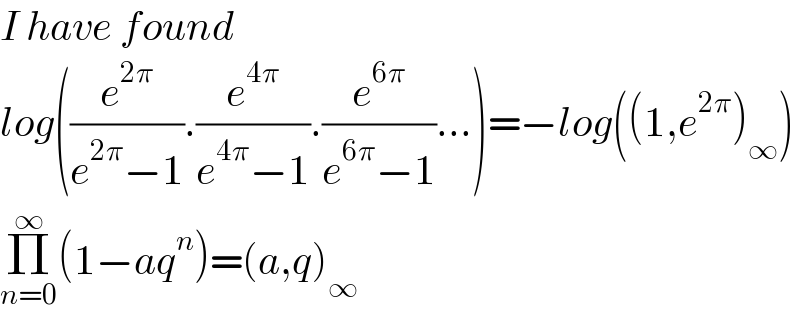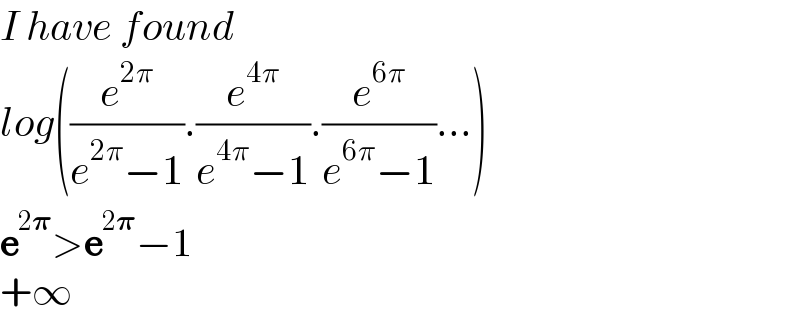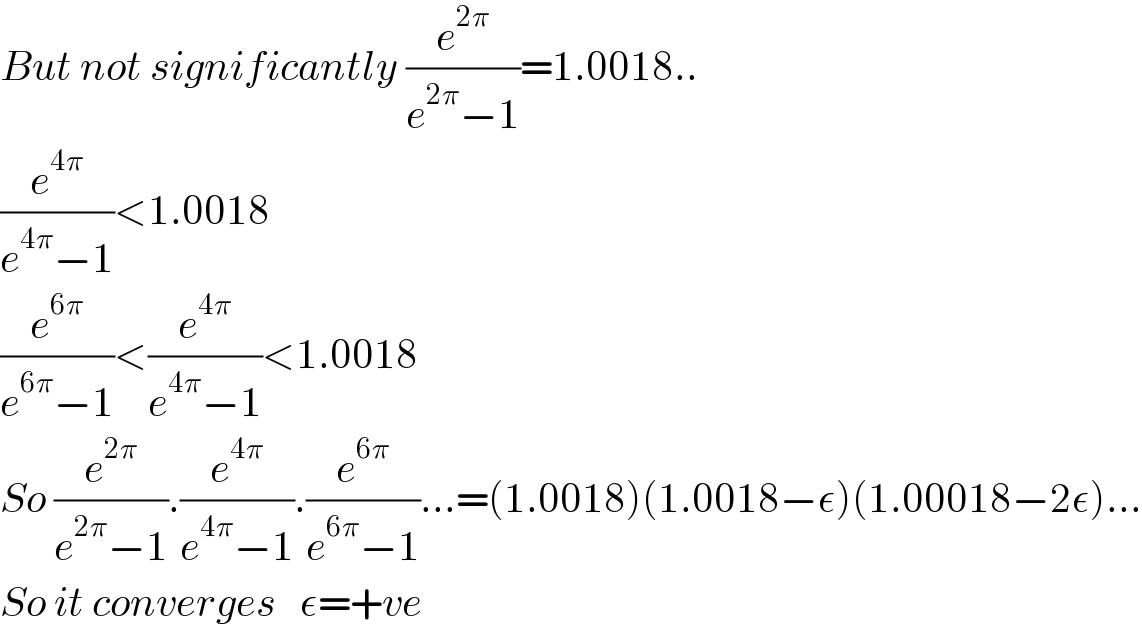
Question and Answers Forum
Question Number 131877 by Dwaipayan Shikari last updated on 09/Feb/21

Commented by Dwaipayan Shikari last updated on 09/Feb/21

Commented by SEKRET last updated on 09/Feb/21

Commented by Dwaipayan Shikari last updated on 09/Feb/21

Commented by Dwaipayan Shikari last updated on 09/Feb/21

